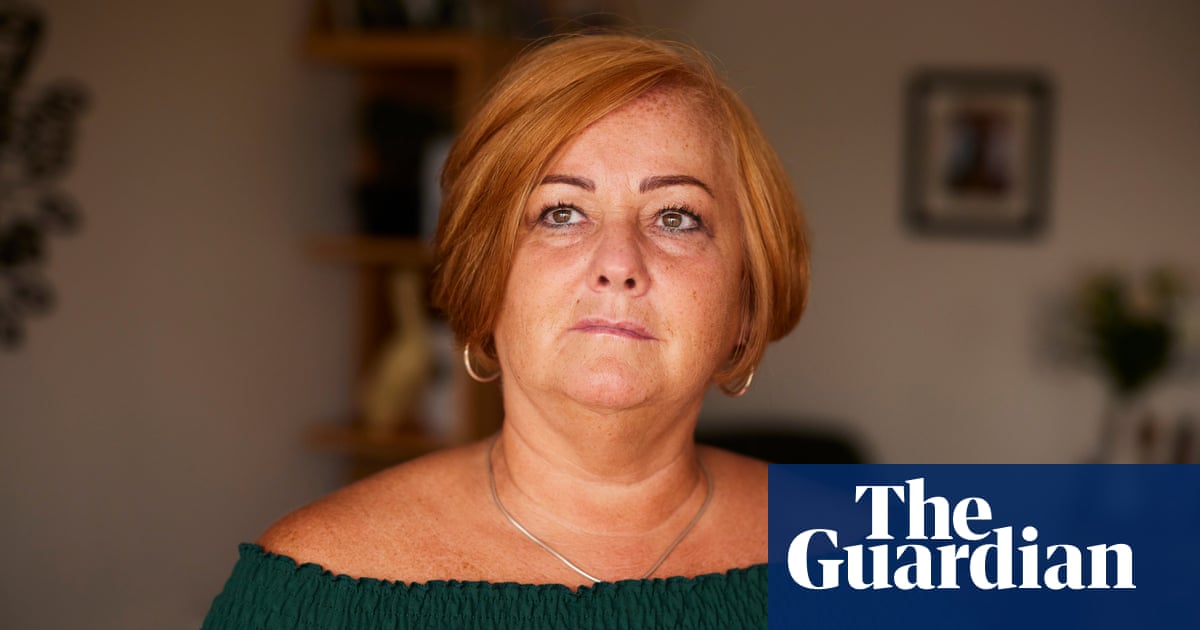
typical weeknight evening in my house might go something like this. I help my nine-year-old son prepare for a spelling test. I sit on the floor and say “territory”, and watch as he lies on his back with his legs in the air and writes it down on a whiteboard next to him, eyes closed, with his left hand. He is right-handed. My seven-year-old is wearing a tank top, regardless of the season, and doing chin-ups using the slats under his loft bed, pulling himself over in a flip through his arms. He interrupts the spelling session to say, “Did you know that the tallest person in the world also has the biggest hands?” He then talks continuously about any topic that crosses his mind during his work out. Meanwhile, my husband, finally done after another day working at the table in our bedroom that serves as his home office, is wearing a top hat from our kids’ old magician’s outfit and playing the piano. He plays by ear. He calls out, “Hey, did you recognise that – that one was Dizzee Rascal!”
It’s like being in a room with Jack Black and Robin Williams and Jim Carrey doing their standup all at once. It’s chaotic, frenetic and hilarious. It’s life with three people who think outside the box, all the time, because very often they have forgotten the box or lost the box or just found another box much more interesting. And it has made me – a neurotypical, type-A rule-follower, squarely-in-the-box operator, former spelling bee champion and perpetual list-maker – into a much more fluid person and creative thinker, willing to let go of my rigid routines. My family have shown me the beauty and freedom of thinking differently.
My older son has diagnosed dyslexia and some attention deficit hyperactivity disorder (ADHD) behaviours that make focusing a challenge. My younger son has recently been referred for ADHD assessment and has had a diagnostic Qb test pointing toward its likelihood. There will be an evaluation and occupational therapy when regular schooling resumes. But it is clear he has difficulty focusing, and when we review the checklist of symptoms, they all feel very familiar. ADHD and dyslexia often coexist in a person’s learning profile, and they are genetic. When asked if anyone else in the family has them, I point at the guy in the top hat, who is also the smartest person I have met. As with many people our age, however, any issues my husband had as a child weren’t diagnosed.
In the UK, it’s estimated that 2-5% of children have ADHD. The prevalence among adults is 3-4%, but the majority of cases are undiagnosed. When we researched dyslexia for our older son, we found many profiles of successful people and stories of resilience. The general feeling was that, if we worked with him, eventually he would find the right coping mechanisms and be just fine.
Our investigation of ADHD, however, presented a much less positive picture. The first thing we learned is that ADHD is physiological: the brain itself is structurally and functionally “atypical” and chemically “dysregulated”, which are scary words. Then we learned that people with ADHD have higher rates of mental illness, substance misuse and criminality. We learned that up to 30% of prisoners have ADHD. Internet searches yielded countless articles about undiagnosed adults who have suffered in their careers, relationships and emotional wellbeing, never understanding why they were so out of sync with the world, and mourning the lives they could have had. When we mention that our child needs assessment, often the first thing people ask, in a way that barely disguises their opinion, is: “You’re not going to medicate him, are you?” as though treating a medical condition with medication is a scandalous, outlandish idea.
There are, of course, many challenges to raising kids who learn differently. It can be physically exhausting, mentally tiring, and emotionally charged for a parent. (See my next essay, Why I Cried Every Day of Remote Schooling.) There is the constant hum of anxiety about their education, their interactions with adults and their peers, their self-esteem, how they’re going to cope in the world of work some day, or find a partner if they can’t sit through a single meal.
However, I refuse to accept that my sons – my exuberant, athletic, energetic, child-sized lightning bolts – are saddled with an immutable trait that will lead them into “dysregulated”, unhappy lives of comorbid (another scary word) mental illness, drug use and brushes with the law. I have learned that dyslexia and ADHD bring lifelong challenges, yes, but also incredible and fascinating ways of being in the world. There is much to be gained from operating with these conditions if you tap into their strengths, and we, as parents, need to hear that side of it, too.
For example, my sons are intensely physical. They’re constantly fidgeting and climbing, and often moving even when they look as if they’re sitting still – classic ADHD symptoms. When my younger son was six months old, he pulled himself up and jumped out of his crib, and when I found him on the floor, he wasn’t crying. He was smiling. When I review his homework with him, he’ll spin in circles or furiously bounce. If I ask him to write a sentence while sitting, he’ll complain that he can’t think of anything; but if I put a fidget toy in his hand and let him jump off the sofa a few times, he becomes a brilliant little writer.
While this behaviour might seem disruptive – and destructive to the furniture – I’ve learned that, in the appropriate setting, connecting the physical with the mental in this way unlocks creativity. And with 75% of my family in motion most of the day, I’ve absorbed their kinetic energy, even though I prefer stillness. Now, my best writing happens in my head, when I’m walking, running, doing the laundry, pacing the house. The challenge with the excessive movement that comes with ADHD is teaching your child when to rein it in; but I also think there is something very valuable in my sons’ mind-body connectivity.
Hyperfocus is another characteristic associated with ADHD that I’ve witnessed in my sons and husband. While people with ADHD may find it hard to focus on mundane tasks or follow through with instructions, if they’re interested in something, they can zero in on it with laser-like intensity. When my husband was applying to business school and found out he would be tested in calculus, a subject he’d never studied previously, he taught himself, because he loves maths. If you ask my older son for some facts about animal habitats or ancient history, get comfortable and grab a pen, because you’ll need to take notes. My younger son did so many flips on the sofa when he was five that we put him in gymnastics so he could flip under professional supervision.
Whenever I see hyperfocus mentioned in discussions or articles about ADHD, it is listed as a symptom to watch for, another red flag which can cause difficulty in relationships or problems at work, because of the way one focuses on one thing to the exclusion of all else. But I believe this trait, if channelled the right way, can be harnessed with great success. For example, although reading is a chore for my son, he has devoured a series of historical biographies because he loves the subject. Olympians Simone Biles and Michael Phelps, who both have ADHD, are intensely physical people who apply razor-sharp focus to their sports.
I’ve taken note of my sons’ and husband’s periods of hyperfocus, and it has changed the way I work. I used to need meticulous order – an uncluttered desk, a clean house – before I could settle down. With home working, remote schooling and two small tornadoes turning the house upside down, I can no longer prioritise my surroundings. My “office” is a family repository of exercise books, children’s crafts, laundry and the aforementioned piano, which my husband will burst in to play during breaks from his calls, despite the fact I’m clearly writing, forcing me to find my own hyperfocus. I’ve learned to find that place in my mind that I can enter and forget the space around me.
As we help our sons succeed in a world that isn’t built for their kind of thinking, there will be challenges, fears, disappointments and difficult decisions to make. There will be moments of deep frustration, as there are now, when we will try to translate the world and it just won’t make sense to them. And as they become adults, that may get tougher. But I believe there will also be triumphs and surprises. I believe they will learn to use their unique perspectives and their physicality to their advantage and they will be successful people. In the meantime, we’re going to need a new sofa.
Ilona Bannister’s When I Ran Away is published by Hodder & Stoughton. To order a copy, visit the Guardian Bookshop.












